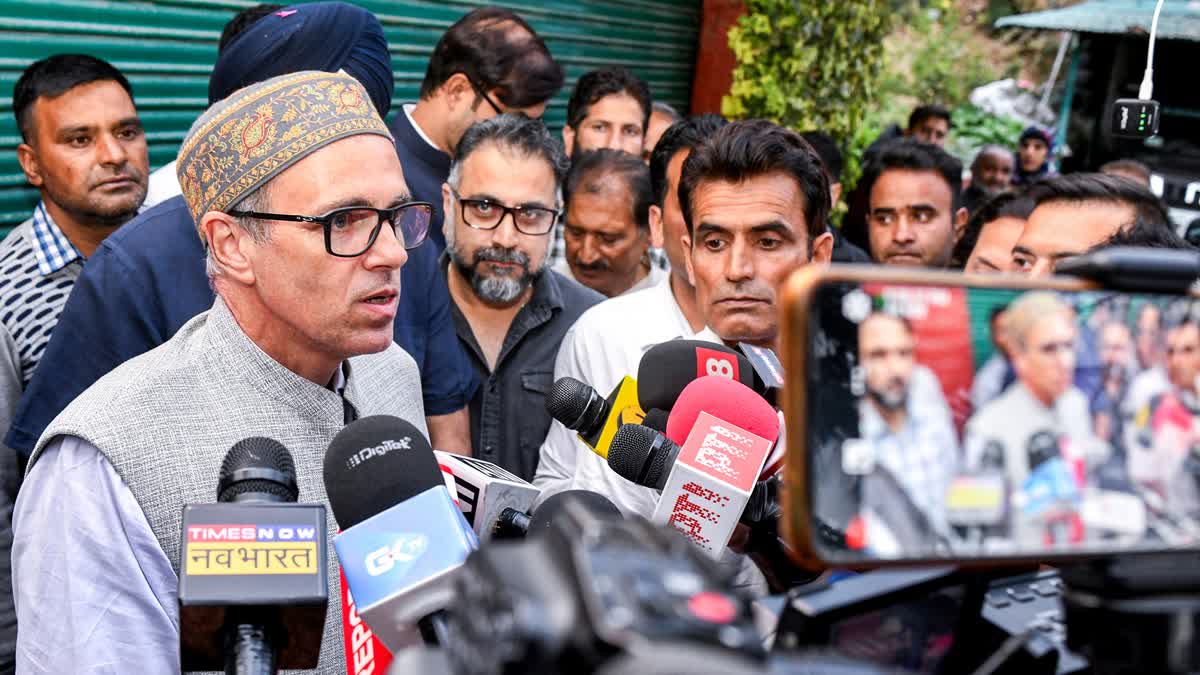Srinagar: With unemployment touching record levels and quotas eclipsing opportunities for open merit aspirants in Jammu and Kashmir, the reservation is turning out to be a major challenge for the Omar Abdullah led government.
The heat is increasing from job-aspirants for revisiting the region’s job-reservation policy, which stands at a staggering over 60 percent after the Bharatiya Janata Party led government increased the quotas by 14 percent in the run-up to the Lok Sabha election 2024, shrinking the opportunities for open merit population.
The ruling National Conference had vowed to review the policy in their poll manifesto with the Chief Minister Omar Abdullah setting up a cabinet sub-committee of three ministers last month.
But the aspirants for civil services like Sahil Parray, who has been vocal on the issue both on social media and beyond, are worried as no official order has been issued so far which could have set a deadline to decide over the issue.
“We are still hopeful something positive will come out of the government panel," Parray said. "Even if it fails, we are going to fight against this policy tooth and nail. That includes knocking on the Supreme Court door.”
The issue erupted when the BJP led central government in the Parliament amended the Jammu and Kashmir Reservation Act, paving way for quotas for newly inducted Pahari Speaking People and increasing 4 percent to Other Backward Classes (OBCs), squeezing the space for the general category in government employment and education institutions.
The total population of J&K as per the last census in 2011 stands at 1.25 crore (12.5 million). Of them, Scheduled Tribes comprise 14,93,299, about 11.90 percent of the total population while as Scheduled Castes are 9,24,991 in population, comprising about 7.37 percent.
Notified in March 2024, the quotas now include 10 percent to Social Castes, 20 percent to Scheduled Tribes, 10 percent to Residents of Backward Areas, 8 percent to Other Backward Classes, 4 percent to residents along Actual Line of Control and International Border and while Economically weaker sections stands at 10 percent.
The proportion has left the general category aspirants scrambling for their rights that falls between 30-40 percent, depending on the recruiting department. In two recruitment advertisements including from Jammu and Kashmir Service Selection Board, for example, the open-merit share stood at 40 percent. But in another instance, open-merit share roughly translated to 20 percent in the admission notice to paramedical courses at Government Medical College in Anantnag.
“We are not against the reservation. I tried to amplify the current reservation policy at all platforms as the quota is not reflective of population demographics. It is not about securing jobs or admission but maintaining quality,” said Ehtisham Khan, a student rights activist.
According to him, they are not against reservation but would like rationalisation of the quota as per the population. “Until then, the Supreme Court cap of 50 percent should be maintained,” he added.
In its landmark Indra Sawhney judgement in 1992, the Supreme Court has capped the reservations at 50 percent. Although the states like Tamil Nadu, Rajasthan, Chhattisgarh, Madhya Pradesh among others have breached the threshold, they remain under the scrutiny of judicial law.
The issue comes in the face of rising unemployment with the Periodic Labour Force Survey (PLFS) by the National Statistics Office putting the region’s unemployment rate at 32 percent, the highest across the country. It is even grimmer for women with the survey’s July-September quarter putting their unemployment rate at 53.6 percent.
Many argue that it has also put on hold the NC’s poll promise of providing 100000 jobs and filling up vacant posts within 180 days of the government.
According to legal experts and officials, the elected government cannot undo the previous policy and can only submit their recommendation to the central government for amending or rationalising the quota. The amendment has to be brought through the Parliament, an official said.
NC Member of Parliament Aga Syed Ruhullah Mehdi supports ‘rationalisation’ of the reservation policy so that none is left out.
Preliminary indications suggest the government does not intend to take away reservation from any segment of the population but would rationalise the quota. This includes, for instance, allowing reservation of certain categories under single head, allowing open merit their due right.
“The doubling of reservation is the main problem and its rationalisation can resolve this issue,” a senior NC functionary told ETV Bharat. “We are not going to annoy any segment. In fact, we supported inclusion of certain groups for reservation.”
This is evident as the NC pushed for reservation to Paharis and Chopans in the Lieutenant Governor administration constituted ‘The Socially and Economically Backward Classes Commission’ in 2020.
Read more:



